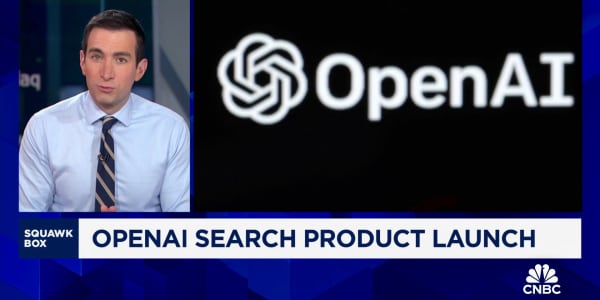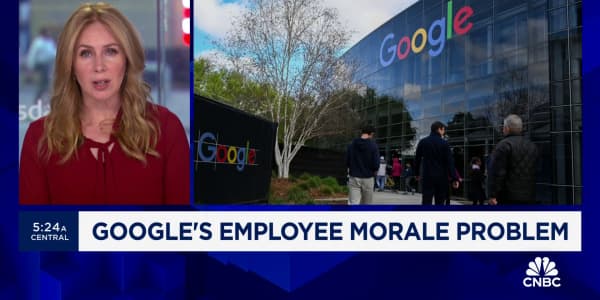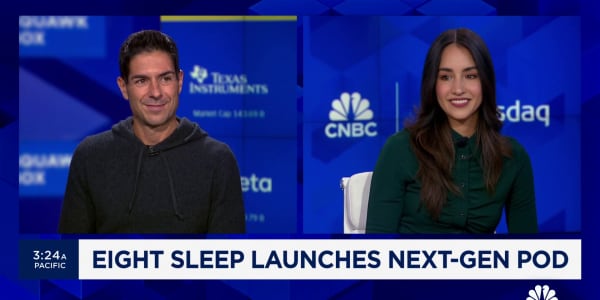Recapping the day's news and newsmakers through the lens of CNBC.
Notes:
Stocks are on a tear, raising the inevitable question: have prices gone too high? There are some worrisome signs, including the fact there isn't enough to worry about. In one survey, investors registered the lowest level of pessimism in 21 months, and the highest bullish sentiment since January, a possible sign of irrational exuberance that's also reflected in record margin borrowing to invest. Also worth noting: momentum stocks have taken a hit, the Nasdaq is well above its 200-day moving average, big-name stocks like Google, Amazon and Microsoft have enjoyed big gains, and revenues have not kept up with earnings gains.
Quotes:
"For every potential negative, people have a quick explanation to refute it."—Paul Hickey, co-founder of Bespoke.
"It gets your antenna up, but it's not a clear signal in itself."—Art Cashin, director of floor operations at UBS.
Consumers are clearly not investors
Notes:
Hand-wringers got something new to fret about this morning, when the Thomson Reuters/University of Michigan poll showed consumer sentiment at its lowest since the end of last year. Consumers' expectations were the lowest in two years. That's not what businesses want to hear, especially retailers preparing for the holidays. The mess in Washington is a big factor.
Quote:
"When asked to describe in their own words what they had heard about recent economic developments, the number of consumers that negatively mentioned the federal government in October was the highest in the more than half-century history of the surveys."—survey director Richard Curtin
Twitter's intellectual capital
Notes:
Twitter's IPO, expected Nov. 7 or thereabouts—with 70 million shares expected to go for $17 to $20 apiece—is the hottest since Facebook's, and investors have visions of first-day bounces dancing in their heads. But can you believe that a company which is no more or less than an app allowing 140-character messages can really be worth $11 billion, especially since Twitter has no patent on that easily duplicated process? Google had naysayers, too—back when all sorts of firms were launching search engines. And Facebook, though it stumbled horribly out of the gate, has done just fine.
Quote:
"Without the patent protection, anybody with a computer and a desire for creativity can quickly launch a competitor. I'll keep you posted if I decide to create my own site. Of course, I'll be sure to announce it on Twitter."—Todd M. Schoenberger, founder and managing partner of LandColt Capital
Condo stress test
Notes:
You remember private-label mortgage-backed securities, right? Those were a kind of bond based on bundles of mortgages, but not backed by government-connected entities like Fannie and Freddie. Now there's a new twist, a private-label security based on bundles of rental properties that will pay yield from rent payments, plus returns from any profitable property sales. It sounds a bit like a REIT but it's not. JPMorgan, Deutsche Bank and Credit Suisse will market $500 million of the unnamed bonds based on single-family rental homes amassed by Blackstone. After the debacle of the 2000s, investors will probably demand a lot of transparency and risk disclosure.
Quote:
"Fitch expects to place a strong emphasis on reliable data obtained from independent sources for determining rental prices, vacancy rates, supply and demand data and other pricing fundamentals. Even so, the lack of historical data and ambitious growth strategies by regional operators will make high investment-grade ratings on these transactions difficult to attain."—Suzanne Mistretta, senior director at Fitch
—By Jeff Brown, Special to CNBC.com




